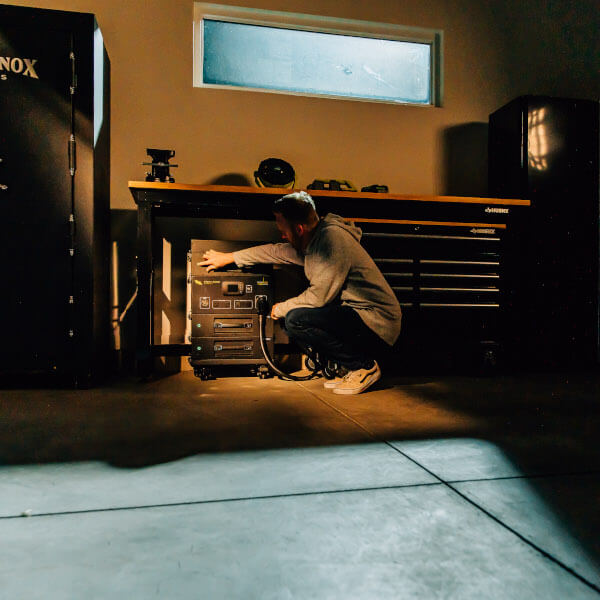Download the complete Hurricane Preparedness checklist below:
Hurricane season is a time of heightened risk, especially for those living in storm-prone areas. In 2024, we witnessed over 20 major hurricanes, with some storms inflicting damage that exceeded $50 billion in losses—leaving countless communities reeling from prolonged power outages and devastating flooding. Last year’s hurricanes left an indelible mark on communities across the Southeast. Florida, in particular, bore the brunt of nature’s fury, being struck by three hurricanes: Debby, Helene, and Milton. Helene and Milton wreaked havoc along Florida’s Gulf Coast and Big Bend, causing severe structural damage and long-term disruptions. Meanwhile, western North Carolina was devastated by Helene’s torrential rainfall, leading to widespread flooding and destruction. The tragic toll was immense, with hundreds of lives lost from Florida to the Carolinas. Additionally, the season was notable for the formation of multiple Category 5 hurricanes for the first time since 2019, highlighting an escalating pattern of extreme weather events that underscore the urgent need for vigilant hurricane prep and robust emergency planning.
With the Atlantic hurricane season starting on June 1—only 100 days away—the urgency to prepare for hurricanes has never been greater. Now is the time to engage in effective hurricane prep and hurricane preparedness measures. Make these next 100 days count and ensure you’re ready to prep for a hurricane by equipping your home with the best emergency backup power solutions and securing reliable home backup power for hurricanes. This guide provides a comprehensive hurricane preparedness checklist along with essential hurricane season prep and hurricane tips to help you stay safe before, during, and after the storm.
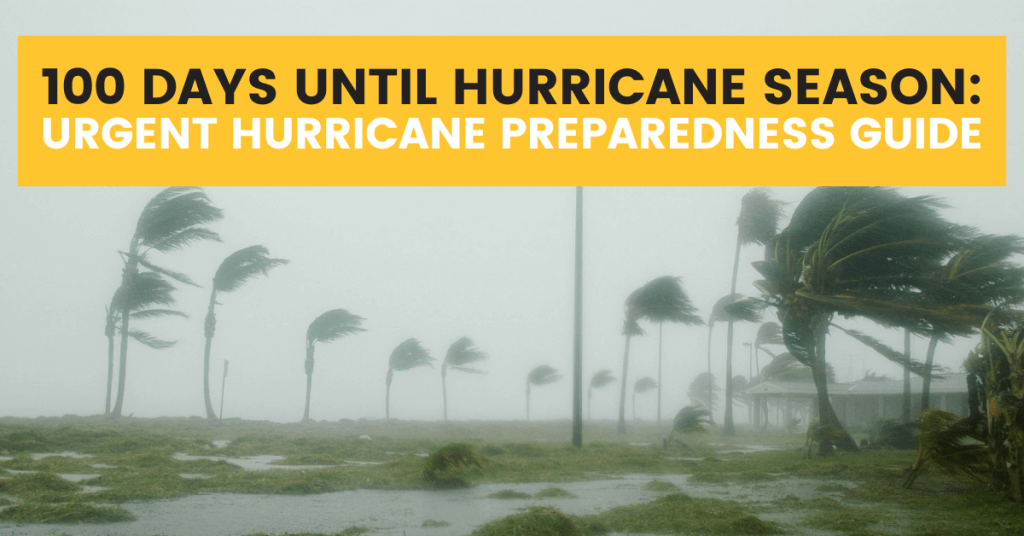
The key to staying safe during hurricane season is early preparation. By taking proactive measures—such as assembling an emergency kit, securing your home, having hurricane backup power and mapping out evacuation routes—you can significantly reduce the risks when a storm is on the horizon. Early preparation not only minimizes potential damage but also gives you peace of mind, ensuring that you and your loved ones are ready to face any challenge that a hurricane might bring.
Disasters, including hurricanes, can strike at any moment, and it is essential to be prepared. Having a comprehensive emergency preparedness plan in place can help you and your loved ones stay safe and secure during an unexpected event. Develop a comprehensive emergency plan with your family to ensure everyone knows what to do when a hurricane strikes.
The first step in creating an emergency preparedness plan is to assess local risks, including natural disasters like hurricanes, earthquakes, and floods, as well as man-made emergencies such as terrorism. Understanding these risks helps prioritize your preparedness efforts and ensure your plan addresses the most likely threats, such as preparing for hurricanes in coastal areas or earthquakes in seismically active regions.
After assessing risks, gather important information like addresses, contact details, medical records, and emergency contacts. Keep a list of essential items, such as medications and important documents, in a safe place. Store this information in multiple locations—on your phone, in a fireproof safe, and with a trusted friend or relative—so you can respond quickly in an emergency.
Create a communication plan that includes a designated meeting place, an out-of-town contact, and alternate methods of communication if phone lines or WiFi go down. This ensures all household members can stay in touch and relay important information during an emergency, even when traditional communication methods fail.
It’s essential to plan a designated meeting location for your family in case of an emergency. Choose a safe, easily accessible spot outside of your immediate neighborhood, such as a local park or relative’s house, where everyone can gather if separated. Make sure all family members know how to get there and establish a backup meeting place in case the first location is unreachable.
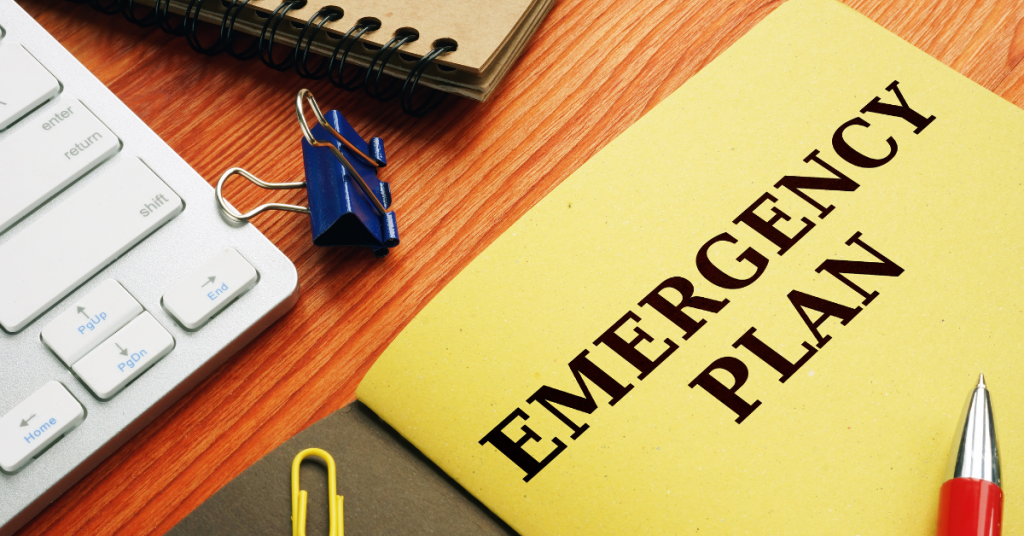
Preparing for an emergency, like a hurricane, means ensuring you have all the necessary supplies to sustain you and your family for at least three to seven days. Stocking up on these essentials will help you weather the storm and avoid scrambling for basic needs in the aftermath.
Water: A key priority in any emergency is hydration. Store at least one gallon of water per person per day, which will cover drinking, cooking, and sanitation. Don’t forget to account for pets, and consider investing in water purification tablets or filters in case your water supply becomes contaminated.
Non-perishable Food: Focus on foods that require no refrigeration or cooking, such as canned goods, energy bars, dried fruits, and peanut butter. Canned vegetables, beans, tuna, and soups are great options. Ensure that you also have a manual can opener in case the power goes out.
Medications: Keep a 7-day supply of prescription medications for every family member. It’s also helpful to have a well-stocked first-aid kit with bandages, antiseptics, pain relievers, and any other necessary medical supplies. Don’t forget over-the-counter medications you might need, like allergy medicine or antacids.
Personal Hygiene Items: Basic hygiene items can make a significant difference when you’re cut off from your regular routine. Pack toothbrushes, toothpaste, soap, hand sanitizer, baby wipes, and toilet paper. These items are essential for maintaining health and comfort during an extended emergency.
Flashlights and Batteries: Power outages are a common consequence of hurricanes, and relying on candles can be dangerous. Instead, stock up on flashlights and extra batteries to ensure that you can see in the dark. Consider rechargeable, solar-powered lights as a backup.
Cash: After a hurricane, ATMs, banks and card readers may be down, so it’s a good idea to have cash on hand. Aim to keep small bills for purchases, as well as coins for use in payphones or parking meters.
Important Documents: Protect your vital records by storing copies of documents such as identification cards, insurance policies, medical records, and financial paperwork in a waterproof bag. Keep both physical copies and digital backups on a secure drive or cloud storage.
By taking the time to stock these essentials in your Emergency Hurricane Supply Kit in advance, you’ll ensure that you’re well-prepared to handle a variety of emergencies without the stress of scrambling for supplies when a storm hits.

During hurricanes, power outages are often widespread and can last for days, leaving entire communities without electricity. For example, Hurricane Helene left millions without power, affecting nearly 3 million people across the southeastern U.S., with some regions experiencing extended outages due to downed power lines and infrastructure damage. To prepare for such disruptions, it’s critical to arrange for emergency backup power, such as gas generators or solar generators.
Gas Generators: Gas-powered generators are commonly used during power outages to run essential appliances such as refrigerators, lights, and medical devices. They are affordable and widely available but require fuel to operate, so it’s crucial to store enough gas to last through the storm. Gas generators should always be used outdoors in well-ventilated areas to prevent the buildup of dangerous carbon monoxide. While they provide reliable power, the need for fuel and ventilation may make them less convenient during extended outages.
During Hurricane Milton in 2024, I spoke with a customer who had prepared with a gas generator and two days’ worth of stored fuel. However, the power outage lasted longer than expected, and they quickly ran through their supply of fuel. While they had the generator, they found themselves without the means to power it. They headed to the nearest gas station, only to find it completely out of gas. They tried the next station—no fuel there either. They continued from station to station, but every one was empty.
Solar Generators: Solar generators offer a clean, renewable energy solution for backup power. They use energy from the sun to power lights, devices, and even major appliances during an outage. When paired with a battery storage system, solar generators can provide consistent power without the need for fuel or emissions. This makes them a great choice for those looking for an environmentally-friendly and quiet option. Solar generators require sunlight to recharge, but with a fully charged battery, they can keep your essential devices running for days.
During Hurricane Helene in 2024, which tragically claimed the lives of at least 231 people across six states, one of the hardest-hit areas was North Carolina. We spoke to a customer who was there in their RV as a full-time RV family. He shared his experience using the Point Zero Energy Titan Power Station, which not only provided power for their own needs but also allowed them to help their neighbors in the RV park. They were able to offer warm meals and provide a source of power to charge devices, making a difference for those around them during such a challenging time.
Choosing between a gas generator and a solar generator depends on your needs and priorities. Gas generators provide immediate power but rely on fuel, while solar generators are a cleaner, more sustainable option with less ongoing maintenance. Either way, having a reliable backup power source ensures you can stay safe and comfortable, no matter how long the power is out during and after a hurricane.
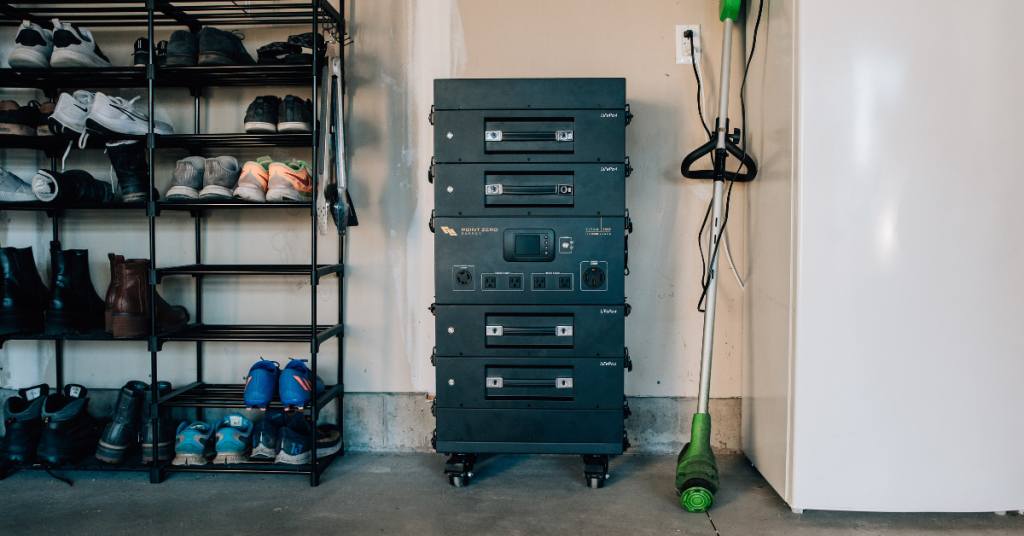
Preparing your home for a hurricane is just as important as preparing yourself and your family. Taking proactive steps to secure your property can minimize damage and increase safety during the storm. Here are a few key actions to take:
Trim Trees and Secure Outdoor Furniture: High winds can turn trees and loose furniture into dangerous projectiles. Trim any overhanging branches and secure outdoor furniture, grills, and other items that could be tossed around.
Install Storm Shutters or Board Up Windows: Protect your windows from flying debris by installing storm shutters or boarding them up with plywood. This can help prevent windows from shattering and reduce the risk of water entering your home. Make sure to have your supplies on hand and ready to go when hurricane warnings are issued.
Reinforce Garage Doors: Garage doors are one of the most vulnerable parts of a home during a hurricane. Reinforce them to prevent structural damage, which can lead to the loss of other important areas of your home.
Test Your Sump Pump and Clear Gutters: To reduce the risk of flooding, test your sump pump to make sure it’s working properly. Additionally, clear any leaves and debris from gutters and downspouts to ensure that water can flow freely and prevent overflow.
Know How to Turn Off Utilities: In the event of flooding or other emergencies, it’s essential to know how to safely turn off your gas, water, and electricity. This knowledge can help prevent fires or further damage caused by electrical issues or water backups.
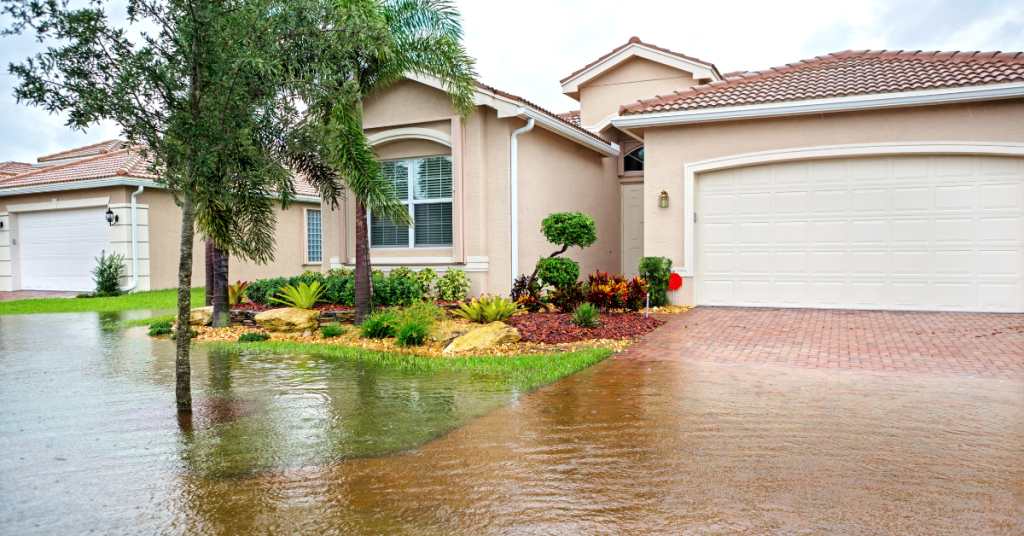
Hurricane preparedness is all about proactive planning and staying alert to potential risks. By following this checklist and taking action early, you can significantly reduce the impact of a hurricane on your home and loved ones. Preparation not only gives you peace of mind but also enhances your ability to respond quickly and effectively when a storm hits. Don’t wait until a hurricane is imminent—start preparing today to ensure that your family is ready for whatever comes your way.
Taking these steps now can make all the difference in minimizing damage, staying safe, and recovering quickly in the aftermath. From securing your home to ensuring you have essential supplies and backup power, the more prepared you are, the better you’ll be able to navigate the challenges that hurricanes bring.
For more detailed safety guidelines, visit the CDC’s Hurricane Safety page and ensure that you have all the necessary resources to protect what matters most.

